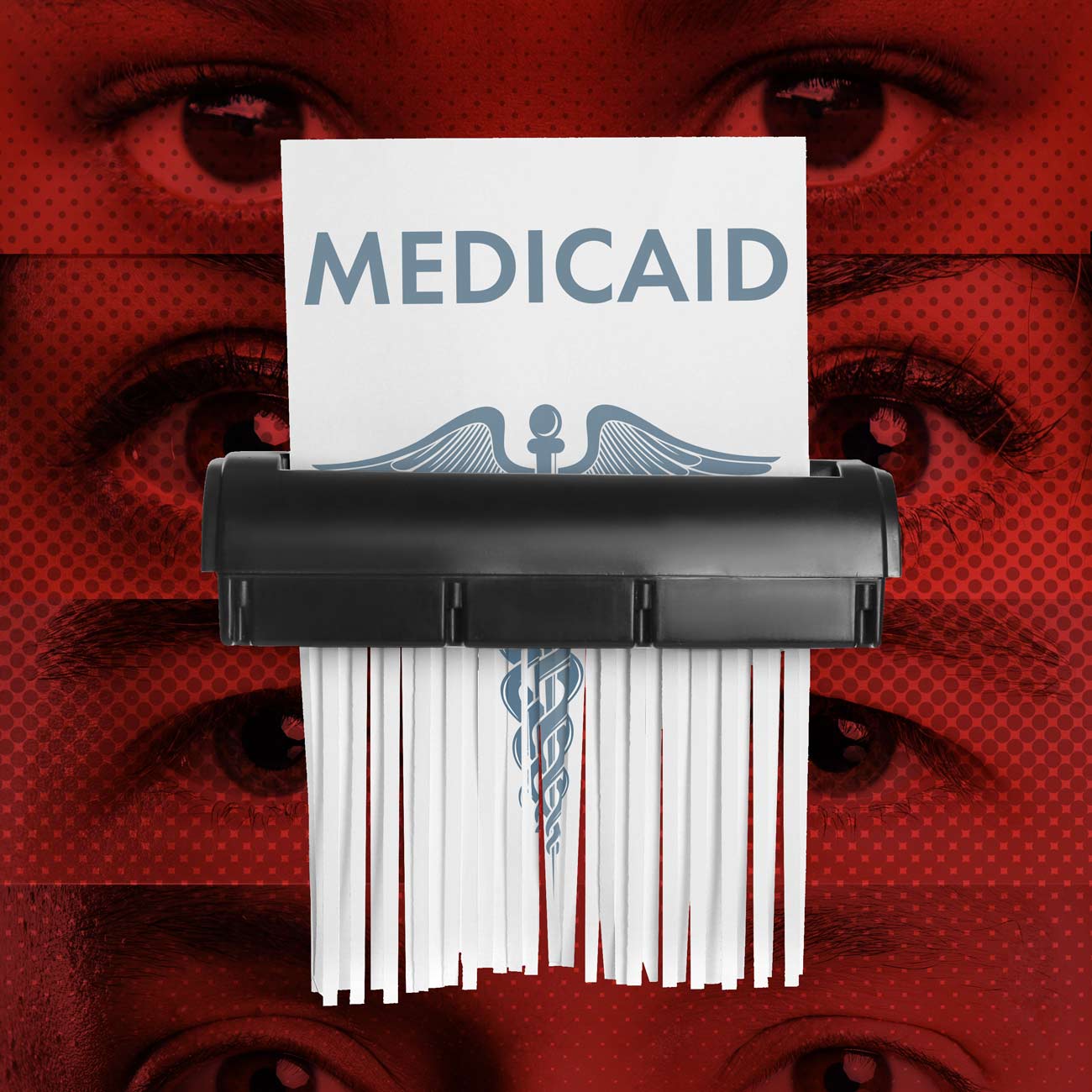
The U.S. Congress is currently at work on a budget to set future tax and spending policy. As the House and Senate quickly work through the process (leaders have targeted Memorial Day to complete the measure) it’s important to understand what’s at stake – the very future of Medicaid as we know it.
The extension of the tax cuts enacted during President Trump’s first term, which are estimated to cost $4.5 trillion over the next 10 years, is a top priority for congressional Republicans. To help “pay for” these tax cuts, they aim to pull $880 billion from the Medicaid program. Cuts of this scale would have profound effects, terminating health coverage for millions of Americans and upending the stability of the entire health care system.
Medicaid, known as MO HealthNet in Missouri, is the federal-state partnership that provides health insurance to low-income children, seniors, people with disabilities, pregnant women, and working families. The proposed cuts, 10% of the federal share of program costs, threaten not only those covered by Medicaid, but everyone who relies on a stable health system, a solvent state budget, and a thriving economy. So, all of us.
About 1.3 million Missourians – one in five state residents – are enrolled in MO HealthNet, which pays for preventive services, doctor and hospital visits, laboratory and diagnostic services, and prescription drugs. It covers 4 in 10 births in Missouri and is the state’s largest payer of mental and behavioral health services.
MO HealthNet covers care and equipment that allows seniors and people with disabilities to remain in their homes and communities. When staying at home is no longer possible, it covers long-term care, paying for two-thirds of all nursing home care in the state. MO HealthNet touches every part of the health care system in every corner of Missouri, from the largest regional medical centers to the smallest rural health clinics.
What would Medicaid cuts mean for Missouri? Missouri Foundation for Health analyzed the effects of various proposals being considered by Congress. All would shift a massive amount of funding responsibility from the federal government to the state and terminate health coverage for tens of thousands of Missourians. Learn more in the following documents: Impact of Potential Federal Medicaid Changes on Missouri, The Effects of Congressional Medicaid Proposals on Medicaid Expenditures in Missouri (summary and key findings), and The Effects of Congressional Medicaid Proposals on Medicaid Expenditures in Missouri (Key findings from the Medicaid financing model).
Depending on the plan adopted, Missouri could see as much as a quarter of its federal funding cut – more than $3.9 billion per year – and as many as 350,000 people could lose health coverage. The impact could be even deeper if Congress combines several of the proposals under consideration.
Missouri, like all states, relies heavily on the federal government to pay for health care. This partnership has always shaped Medicaid: state residents pay federal taxes, some of which come back home to ensure that everyone receives the care they need, including people fighting cancer, seniors in nursing homes, children, veterans, and people with disabilities.
Medicaid delivers nearly $13 billion into the state each year, comprising 70% of the MO HealthNet budget. If reduced, the effects will ripple through the program, through the state budget, and through the state economy.
For example, seniors in nursing homes and individuals with disabilities account for about half of all MO HealthNet costs. Funding likely can’t be cut without dramatically reducing services for these Missourians.
Children make up nearly half of MO HealthNet beneficiaries. Deep funding cuts could mean slashing services for kids or postpartum mothers during a time of increasing maternal mortality, especially for Black women.
Because MO HealthNet was expanded several years ago through a constitutional amendment, Missouri lawmakers are required to replace lost federal funding. This revenue would have to come from new taxes or other parts of the state budget, reducing funding for education, public safety, and other essential services.
Federal cuts shift funding responsibility and the tough decisions to the state level, resulting in more Missourians without health insurance and making it tougher for rural hospitals and other health care providers to keep their doors open. Jobs and economic development, both inside and outside the health care system, would fade away.
Medicaid is not perfect. No health insurance program is. But deep indiscriminate cuts do nothing to lower costs or make care more accessible to Missouri families. To ensure that Missourians don’t get hurt, reforms must be done carefully and should not be rushed.

